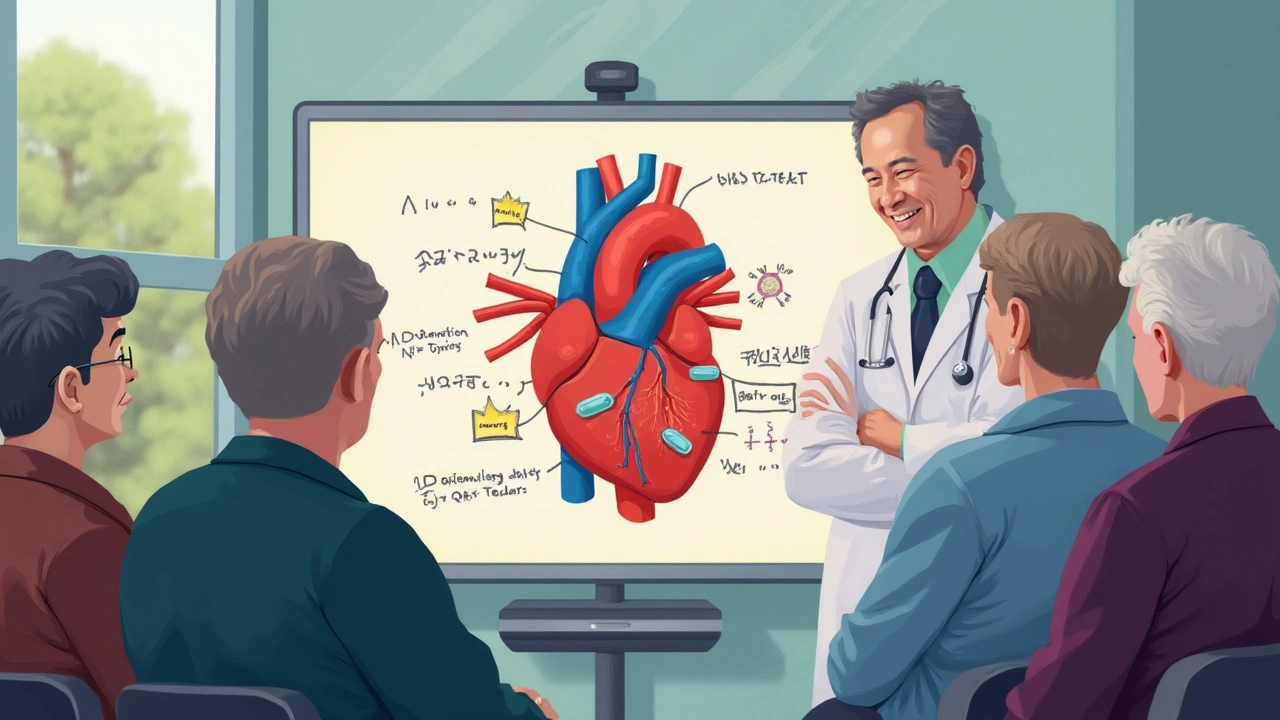Beta-blockers: what they do and who needs them
Beta-blockers are a group of medicines that slow your heart and lower blood pressure by blocking beta-adrenergic receptors. Doctors commonly prescribe them for high blood pressure, irregular heart rhythms, angina (chest pain), heart failure, and to prevent future heart attacks. Some are also used for migraine prevention, performance anxiety, and certain tremors.
Common beta-blockers and why one might be chosen
Not all beta-blockers are the same. Metoprolol and atenolol are often used for high blood pressure and angina. Carvedilol and bisoprolol are popular in heart failure because they help the weakened heart pump more efficiently. Propranolol crosses into the brain easily, so it’s often chosen for anxiety and migraine prevention. Nebivolol can cause less fatigue for some people. Your doctor picks a specific drug based on your condition, other medicines you take, and side effect risks.
If you have asthma or severe COPD, some beta-blockers can tighten airways. Cardioselective beta-blockers (like metoprolol) are usually safer for people with mild respiratory disease, but your prescriber should decide what’s best for you.
What to watch for: side effects and interactions
Common side effects include tiredness, slow pulse, cold hands or feet, and dizziness when you stand up. Some people notice sleep changes or vivid dreams. Sexual side effects happen to some users. Beta-blockers can reduce how well you sense low blood sugar, so people with diabetes need close monitoring. Serious warning signs are fainting, very slow heartbeat (under 50 bpm for many adults), or breathing trouble—get medical help if these happen.
Interactions matter. Combining beta-blockers with certain calcium channel blockers (like verapamil or diltiazem), digoxin, or some antiarrhythmics can slow your heart too much. Always tell your doctor and pharmacist every medicine you take, including over-the-counter drugs and supplements.
Practical tips to take them safely: take the pill at the same time each day, often with food to reduce stomach upset; don’t stop suddenly—taper off with your doctor to avoid rebound high blood pressure or chest pain; check your pulse and blood pressure regularly, and keep a log to show at appointments; carry a list of your meds in case of emergency.
If you buy medications online, use a licensed pharmacy and keep prescriptions on file. Ask the pharmacist to confirm the drug name, dose, and how to take it. If you feel unusually weak, dizzy, or experience chest pain or shortness of breath after starting or changing dose, contact your provider right away.
Beta-blockers are effective and often lifesaving when used correctly. A clear plan with your healthcare team—what to expect, how to watch for problems, and how to manage side effects—makes them much safer and easier to live with.
Toprol: Uses, Side Effects, and Tips for Managing High Blood Pressure
Get the real facts about Toprol (metoprolol), a popular beta-blocker for high blood pressure and heart health. This deep dive covers how it works, what it treats, side effects, and smart tips for safe use. Perfect for anyone curious about medications or managing heart conditions.
More
